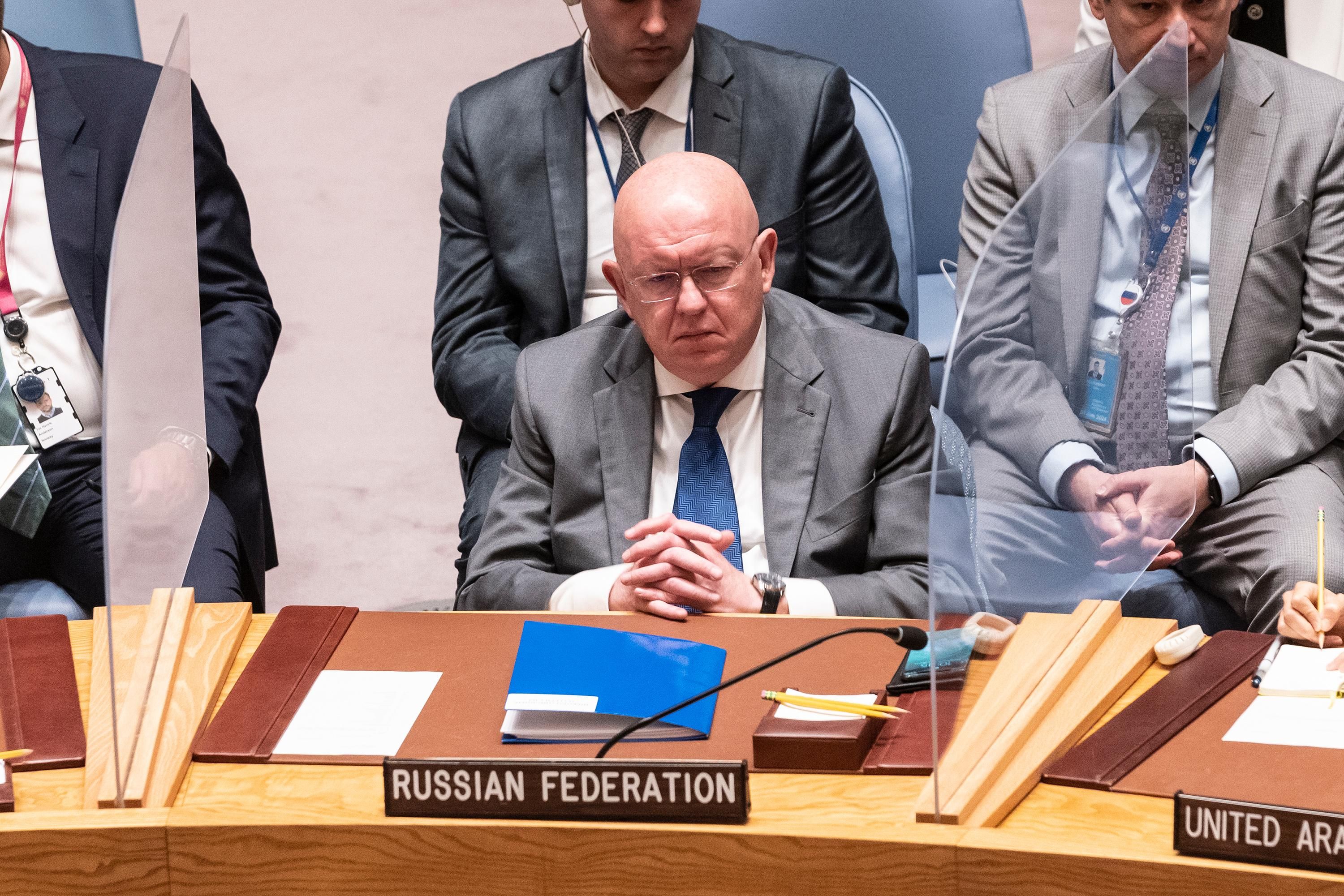
Peace advocates voiced their disappointment and outrage on Friday after Russia blocked a final agreement aimed at fortifying the decades-old Treaty on the Nonproliferation of Nuclear Weapons, which critics say has failed in its central mission of stopping the spread of atomic weaponry worldwide.
With the threat of a nuclear conflict believed to be at its highest level since the Cold War amid growing tensions between the U.S. and Russia—which together possess more than 90% of the world's nuclear weapons—the 191 parties to the nonproliferation treaty (NPT) attempted over the past several weeks to negotiate a deal reaffirming and strengthening the document's core objectives.
"There is general support for the treaty, but a deficit of leadership—and concrete action—on disarmament goals and objectives."
But Russia rejected a final 36-page draft over its mention of Ukraine's Zaporizhzhia nuclear power plant, which Russian forces are currently occupying, fueling fears of a catastrophe.
The provision that Russia opposed states, "The Conference expresses its grave concern for the military activities conducted near or at nuclear power plants and other facilities or locations subject to safeguards under Ukraine's comprehensive safeguards agreement, in particular the Zaporizhzhia nuclear power plant, as well as the loss of control by the competent Ukrainian authorities over such locations as a result of those military activities, and their profound negative impact on safety, security, including physical protection of nuclear material, and safeguards."
"The Conference recognizes that the loss of control over nuclear facilities and other locations prevents the competent Ukrainian authorities and the [International Atomic Energy Agency] from ensuring that safeguards activities can be implemented effectively and safely," the provision adds.
Russia said it wasn't alone in objecting to the final draft text. Igor Vishnevetsky, deputy director of the Russian Foreign Ministry's Non-Proliferation and Arms Control Department, maintained Friday that many nations weren't happy with "a whole host of issues" in the document.
The failure of NPT parties to reach a consensus deal is "terminally unserious and a total abdication of responsibility in the face of an unacceptably dangerous global situation," said Beatrice Fihn, executive director of the International Campaign to Abolish Nuclear Weapons (ICAN).
"At a time when an NPT nuclear-weapon state is using its nuclear weapons to facilitate an illegal invasion, when the nuclear-armed states have not only failed to make progress on their disarmament obligations but have spent over $82 billion on maintaining and upgrading their arsenals, when the risk of use of nuclear weapons is higher than ever, the failure of the review conference to take any action is inexcusable," said Fihn.
Many nuclear-armed parties to the NPT, including the U.S. and Russia, have been accused of failing to comply with the binding treaty, which prohibits nuclear states from transferring atomic weaponry to non-nuclear countries and requires all parties to "pursue negotiations in good faith on effective measures relating to cessation of the nuclear arms race at an early date."
But the treaty's existence and formal acceptance by major countries have not prevented the continued build-up and modernization of nuclear arsenals. According to a June analysis by the Stockholm International Peace Research Institute, global nuclear arsenals are set to grow over the next decade for the first time since the Cold War.
Daryl Kimball, executive director of the Arms Control Association, said Friday that "the NPT is often called the cornerstone of global nuclear nonproliferation and disarmament, but the debate and results of this meeting reveal there are cracks in the foundation of the treaty and deep divisions between nuclear-armed states."
"Even if Russia had been more flexible on how the NPT Review Conference should address the Zaporizhzhia nuclear crisis," Kimball added, "the draft text that emerged from the conference negotiations illustrates there is general support for the treaty, but a deficit of leadership—and concrete action—on disarmament goals and objectives."
The latest NPT conference, which was delayed for two years due to the coronavirus pandemic, was the first since the Treaty on the Prohibition of Nuclear Weapons (TPNW) took effect last year without the backing of the United States, Russia, China, and other nuclear-armed countries.
At their first meeting in June, parties to the TPNW agreed to a sweeping action plan to advance the cause of global nuclear disarmament.
"Faced with this current unacceptable dangerous threat of nuclear war, the TPNW states parties did in three days what the NPT failed to do in four weeks—agree to a plan for nuclear disarmament," Fihn said Friday. "We urge all those governments which share our frustration at the NPT outcome to join the TPNW now, to put their efforts into a treaty which is working, which is meeting the urgency of the moment."
This content originally appeared on Common Dreams - Breaking News & Views for the Progressive Community and was authored by Jake Johnson.
Jake Johnson | Radio Free (2022-08-27T09:21:10+00:00) ‘Inexcusable’: Russia Blocks Final Deal on Nuclear Nonproliferation Treaty. Retrieved from https://www.radiofree.org/2022/08/27/inexcusable-russia-blocks-final-deal-on-nuclear-nonproliferation-treaty/
Please log in to upload a file.
There are no updates yet.
Click the Upload button above to add an update.